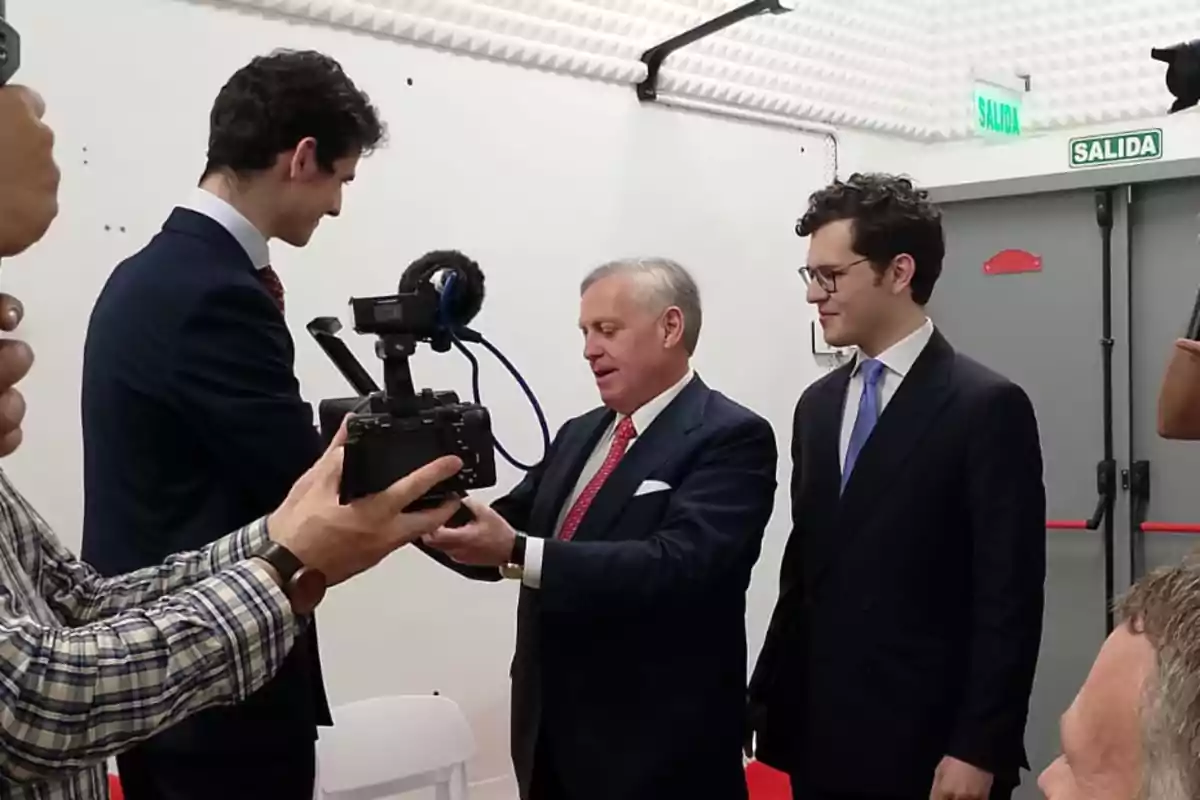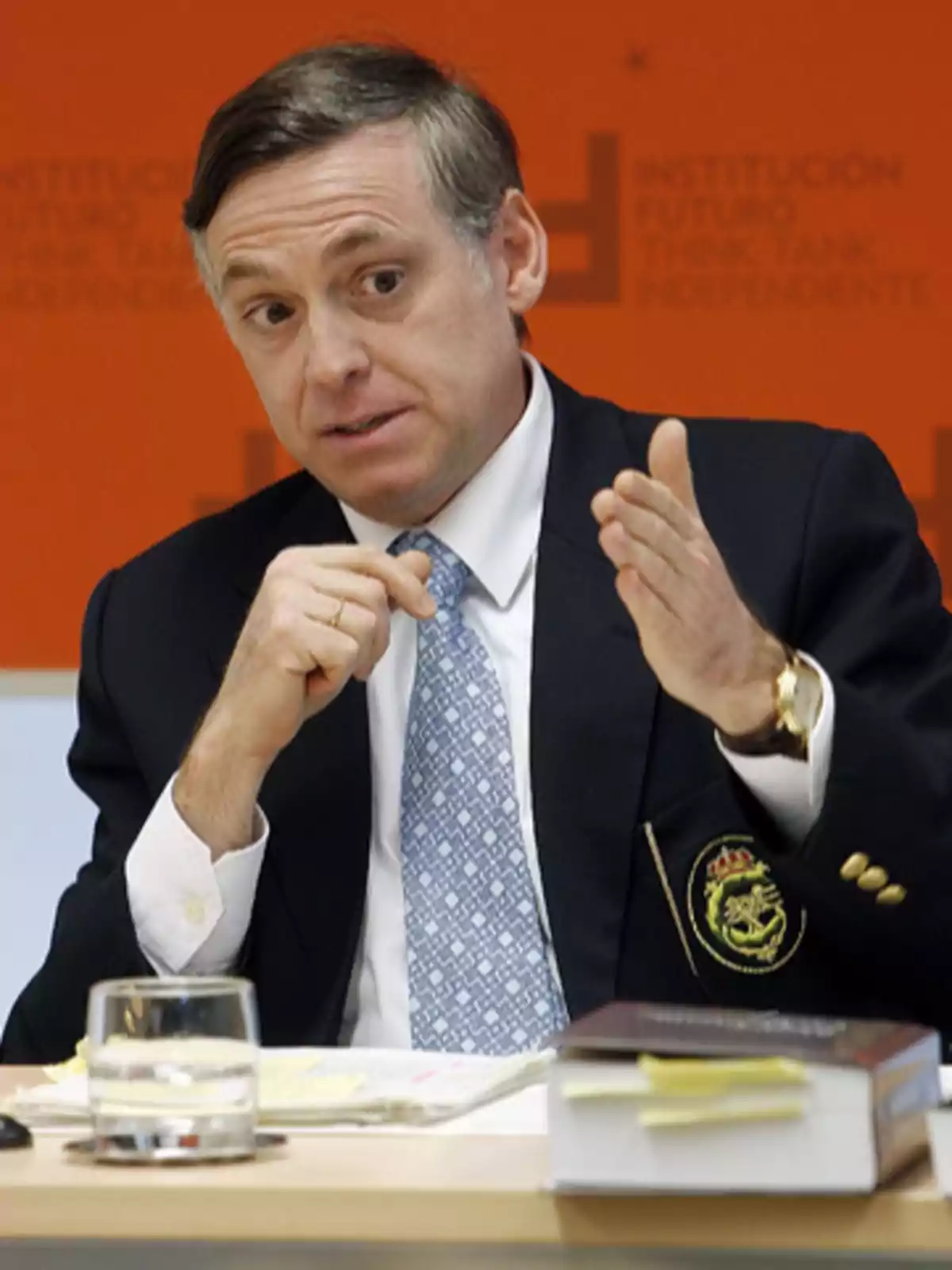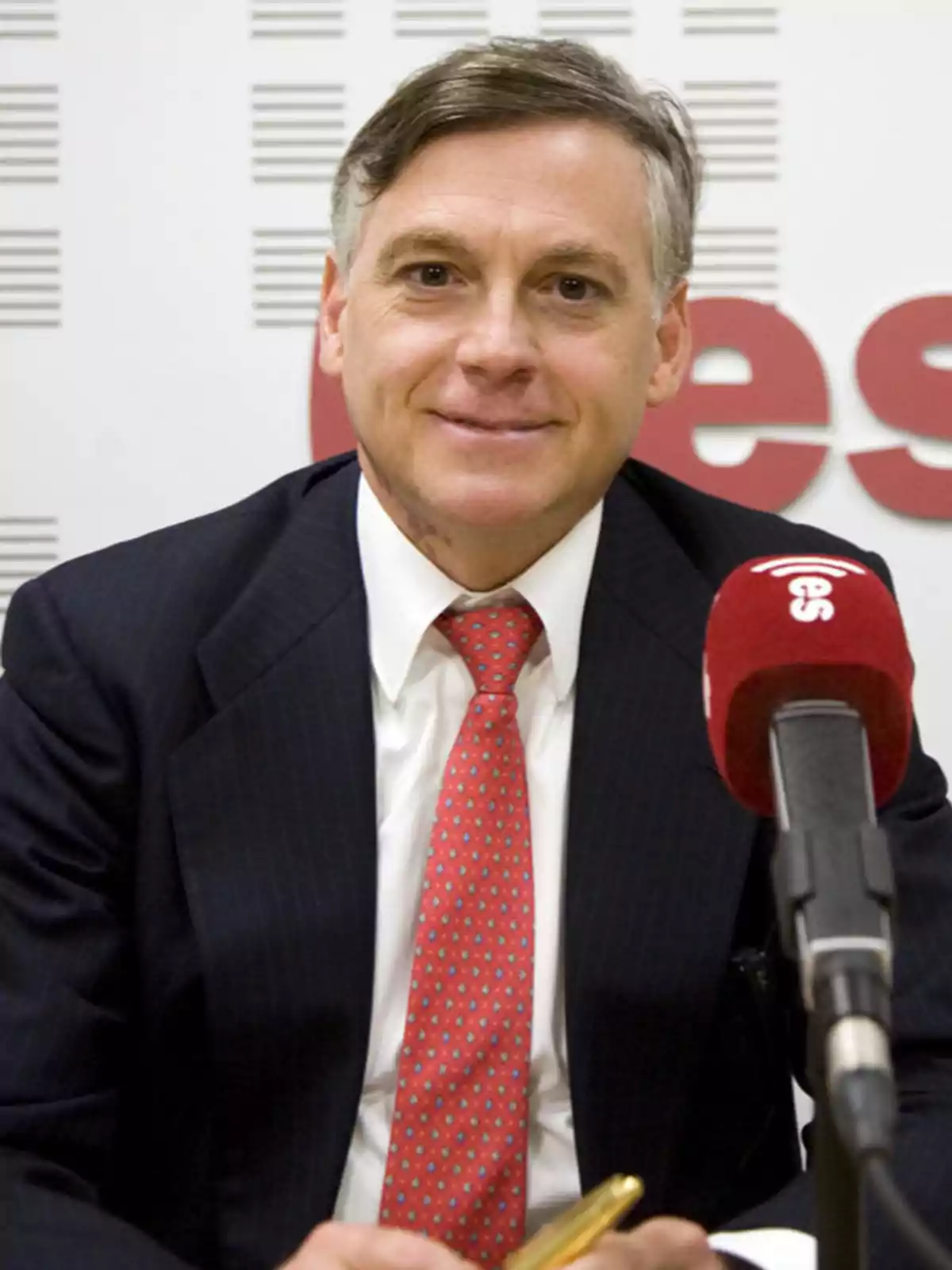
Jesús Huerta de Soto visits Argentina, the most influential anarcho-capitalist in the world
At ESEADE he received an award for his legacy and encouraged young people to embrace the ideas of freedom
On Wednesday, April 23, 2025, at the ESEADE facilities, the Hispanic American Youth Award for Freedom was presented to Professor Jesús Huerta de Soto, a recognition granted by the Austrian Libertarian Association —a member of the Hispanic American Network for Freedom— and delivered by Alfonso Muñoz Ruiz and Miguel Ángel Alonso Cancino.
During the event, Professor Huerta de Soto addressed the attendees, reviewing his journey as a student, sharing personal experiences with Friedrich Hayek, and dedicating a heartfelt message to President Javier Milei, whom he described as "a hero of freedom" for expanding these ideas like no other in recent history. He also enthusiastically encouraged the young attendees to delve deeper into the study of liberal thought, asserting that "the only path we should aspire to is anarcho-capitalism."

Among the most notable attendees were Philipp Bagus, Bernardo Ferrero, Miguel Ángel Alonso Neira, Daniel Gallego, and Ignacio Almara, Alejandro Nimo. As the event concluded, a panel discussion was held with the participation of Huerta de Soto, Martín Krause, and Alberto Benegas Lynch (h).
To understand the intellectual magnitude of Professor Huerta de Soto, it is necessary to briefly review his academic career and his vast contribution to contemporary liberal thought.
Jesús Huerta de Soto, whose unwavering commitment has educated thousands of young people, whether in classroom settings, through masterful recorded lectures, or via his influential master's in Austrian School Economics, has become the undisputed reference of anarcho-capitalism in recent decades.
From the dawn of his career, Huerta de Soto has forged a path that transcends simple academia. With a multidisciplinary education, graduated in Economics, Law, and Actuarial Science, and enriched with an MBA from Stanford thanks to a scholarship from the Bank of Spain, the Madrid professor has managed to combine scientific rigor with a deeply humanistic vision. This synthesis of knowledge allowed him to obtain, during his doctorates, two titles that cemented his critical perspective on state interventionism and socialism, while strengthening his defense of the free market as the engine of prosperity.

But what truly distinguishes Huerta de Soto is the way he integrates three essential pillars that underpin his thought and, by extension, that of the Austrian School.
The Theoretical Pillar, Heir of Mises
Inspired by Ludwig von Mises's keen vision, Huerta de Soto defends the idea that without the existence of a genuine price system —the product of the free interaction between supply and demand— it is impossible to allocate resources rationally. In emblematic works like Socialism, Economic Calculation, and Entrepreneurial Function, he masterfully argues that socialism, lacking a spontaneous valuation mechanism, is doomed to chronic inefficiency and the impossibility of planning. For him, the entrepreneur, as an actor who dares to face uncertainty and discover opportunities in the chaos of the market, is the true architect of social coordination and economic progress.
The Historical-Evolutionary Pillar, in the Light of Hayek
Friedrich A. Hayek's dynamic perspective permeates Huerta de Soto's analysis, highlighting that institutions and social norms do not arise by central mandate but emerge spontaneously in response to individual needs and actions. This historical-evolutionary vision underscores that social order, based on free interaction, is an organic process in constant adaptation, much more flexible and effective than any attempt at centralized planning. Thus, the insistence on spontaneous order stands as a key argument to reject state interventionism and reaffirm the superiority of the free market.

The Ethical Pillar, Inspired by Rothbard
Complementing the analysis, Huerta de Soto embraces the ethical dimension of Murray Rothbard's thought, who fused natural law with a moral critique of state coercion. For Huerta de Soto, true justice in the economic realm can only be achieved when private property and free consent between individuals are uncompromisingly respected. This ethical stance not only legitimizes the defense of anarcho-capitalism but also harshly criticizes those systems that, by imposing restrictions and subsidies, undermine the integrity of the market and individual freedom.
The integration of these three approaches, Misesian theoretical rigor, Hayekian evolutionary understanding, and Rothbard's ethics, constitutes the backbone of Huerta de Soto's work. This argumentative trio allows him not only to dismantle the foundations of socialism and interventionism but also to propose radical alternatives, such as the full reserve banking system, which would prevent artificial credit expansion, considered by him as the main source of economic crises.
Huerta de Soto's influence extends beyond his writings and lectures. His legacy has been transmitted through a rich school of disciples, among them Philipp Bagus, Juan Ramón Rallo, and Miguel Anxo Bastos, who continue to spread these ideas in Spain, Latin America, and around the world. In fact, even in Argentina, where President Milei has publicly declared his adherence to the principles that Huerta de Soto defends, the significance of his thought is recognized in shaping a new era of freedom and individual responsibility.

In short, Jesús Huerta de Soto stands as a true architect of free thought. His work, marked by an unrelenting cultural battle, has allowed thousands of young people to discover a path based on freedom, spontaneous coordination, and market ethics. In a world increasingly dominated by state interference and central planning, his vision —forged in the synthesis of Mises, Hayek, and Rothbard— presents itself as a coherent, challenging, and essential proposal for building truly free societies.
More posts: